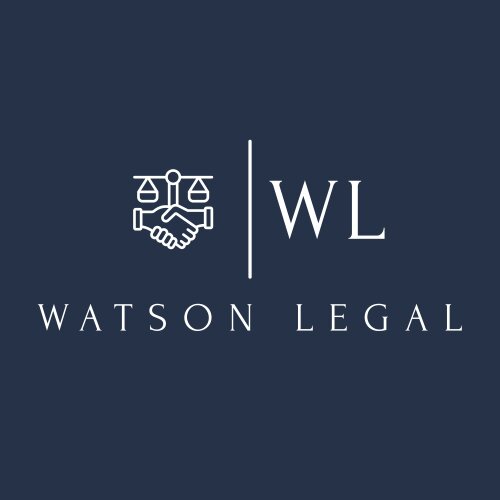Best Whistleblower & Qui Tam Lawyers in Athlone
Share your needs with us, get contacted by law firms.
Free. Takes 2 min.
List of the best lawyers in Athlone, Ireland
1. About Whistleblower & Qui Tam Law in Athlone, Ireland
In Ireland, whistleblower protections are primarily provided by the Protected Disclosures Act 2014, as amended by subsequent legislation. The framework covers workers who disclose information about wrongdoing, unsafe practices, or breaches of legal obligations within an organisation. Athlone residents who raise concerns can seek protection from dismissal or detrimental treatment under this act.
Unlike the United States concept of qui tam, Ireland does not offer a private “reward” or private enforcement action against wrongdoers through a relator's suit. Enforcement and investigations are led by regulators or prosecutors, with whistleblowers protected from retaliation. A solicitor in Athlone can help you understand eligibility, remedies, and the correct reporting pathway.
Whistleblowing in Ireland typically involves reporting to an employer first, then to a designated regulator if required. In Athlone, your local solicitor can help map the route through relevant authorities such as the Workplace Relations Commission (WRC) or sector regulators. This guidance helps ensure you remain protected while pursuing appropriate action.
Ireland uses a statutory framework to shield whistleblowers from retaliation, focusing on reporting channels, not private rewards.
Directive 2019/1937 on whistleblower protection was transposed into Irish law to strengthen protections and broaden coverage.
Citations: Official Irish law texts and government guidance provide the baseline for protections and reporting procedures.
2. Why You May Need a Lawyer
Consultation with a solicitor or legal counsel in Athlone is often essential to protect your rights and to navigate complex reporting requirements. Below are concrete scenarios where legal assistance is commonly needed.
- You uncover financial irregularities at a local manufacturing site in Athlone and fear retaliation for reporting them.
- You suffer demotion or dismissal after raising health and safety concerns about a plant in Athlone.
- You are a contractor or agency worker who reports misconduct and must establish your protection status under the act.
- You want to file a formal Protected Disclosure and need help choosing the correct regulator and reporting channel.
- You need advice on preserving confidentiality and the timing of your disclosure to maximise protection.
- You face ongoing retaliation and seek interim remedies or compensation options that a solicitor can advise on.
A local solicitor can assess whether your situation qualifies as a protected disclosure and help prepare documentation for regulators or the employer. This reduces the risk of inadvertent non-compliance and strengthens your position in any subsequent proceedings.
3. Local Laws Overview
The core Irish framework for whistleblowing is the Protected Disclosures Act 2014, amended to align with EU requirements. The Act provides protection for workers who disclose information about wrongdoing in or by their employer.
Key updates include the Protected Disclosures (Amendment) Act 2022, which strengthens reporting channels and expands protections to a broader class of workers and circumstances. These changes were designed to improve compliance with the EU Directive on whistleblower protection and to modernise reporting processes.
In parallel, Ireland’s safety and health framework supports whistleblower concerns about workplace safety. The Safety, Health and Welfare at Work Act 2005 (as amended) creates duties for employers to address risks and supports disclosures about health and safety breaches. This complements the protected disclosures regime in many Athlone workplaces.
- Protected Disclosures Act 2014 - primary whistleblower protections for workers. (amended by 2022 provisions)
- Protected Disclosures (Amendment) Act 2022 - expands coverage and reporting channels; implements EU directive requirements.
- Safety, Health and Welfare at Work Act 2005 - supports health and safety disclosures and employer duties in workplaces.
EU Directive 2019/1937 on whistleblower protection requires robust, accessible channels and anti-retaliation safeguards across member states; Ireland has implemented this through national amendments.Source: EU Directive information and Irish implementation guidance
4. Frequently Asked Questions
What is a protected disclosure under Irish law?
A protected disclosure is information about wrongdoing in or by your employer that you report to the appropriate authority or regulator.
How do I make a whistleblowing disclosure in Athlone?
Start by notifying your employer in writing if the policy allows. If the issue persists, you may report to a regulator or the designated officer as advised by a solicitor.
What is the difference between whistleblowing and a private lawsuit?
Whistleblowing concerns reporting wrongdoing with statutory protection from retaliation. A private lawsuit is a separate civil action that may follow after investigations.
Do I need to be an employee to qualify for protection?
Generally, protection extends to workers, including contractors and agency staff, depending on the circumstances and the reporting context.
How long does it take for a regulator to respond to a disclosure?
Regulatory responses vary by case and sector. Initial contact or acknowledgement may occur within weeks, with full investigations taking months.
What costs should I expect when hiring a whistleblower lawyer?
Costs depend on the complexity and whether you pursue mediation or formal litigation. Many solicitors offer initial paid consultations.
Can I report to a regulator directly without telling my employer first?
Yes, you can report directly to a regulator if the concern involves wrongdoing that affects public interest or if there is fear of retaliation.
Where can I report a disclosure in Athlone?
Regulators such as the Workplace Relations Commission and sector-specific bodies typically handle disclosures. Your solicitor can guide you on the correct route.
What is the timeline for a typical whistleblower investigation?
Initial regulatory steps may occur within 4-8 weeks, while full investigations can extend over several months depending on complexity.
Do I have to reveal my identity when making a disclosure?
Often, disclosures can be made confidentially; however, some regulators may require information to progress an inquiry.
What protections exist if I suffer retaliation?
Protections include protection from dismissal and detriment; remedies may include reinstatement or compensation, depending on the case.
Is there a difference between a whistleblower and a qui tam action in Ireland?
Yes. Ireland recognises whistleblower protections through statute, not private qui tam actions with financial rewards.
5. Additional Resources
Access official government guidance and regulatory bodies to understand your rights and reporting options in Athlone.
- Workplace Relations Commission (WRC) - guidance on whistleblowing, employment rights, and complaint pathways. https://www.workplacerelations.ie/
- Irish Statute Book - text of the Protected Disclosures Act 2014 and amendments for precise legal language. https://www.irishstatutebook.ie/
- Health and Safety Authority (HSA) - information on health and safety disclosures and employer duties. https://www.hsa.ie/
- EU Directive 2019/1937 on whistleblower protection - overview of EU requirements and member state transposition. https://ec.europa.eu/info/law/law-topic/data-protection/eu-whistleblower-protection_en
Official legal texts and regulator guidance offer precise definitions, scope, and remedies available to whistleblowers in Ireland.Sources: WRC, Irish Statute Book, Health and Safety Authority, European Commission guidance.
6. Next Steps
- Consult a local Athlone solicitor to confirm if your situation qualifies as a protected disclosure under the Act. Schedule a 60-minute initial consultation within 1-2 weeks.
- Compile all evidence and timeline details, including dates, emails, and witness notes. Do this before your meeting to accelerate advice.
- Identify the correct reporting channel with your lawyer’s guidance. This could be your employer, a regulator, or a designated officer.
- Draft and submit a formal disclosure with your solicitor, ensuring you preserve confidentiality where possible. Expect a regulator acknowledgement within weeks.
- Request interim relief or protection if you face retaliation. Your solicitor can apply for remedies or interim orders as needed.
- Follow up with regulators for progress updates and maintain ongoing documentation of any further retaliation or communications.
- Review any settlement, reinstatement, or compensation options with your solicitor if the investigation results in a remedy. Plan for longer-term protections.
Lawzana helps you find the best lawyers and law firms in Athlone through a curated and pre-screened list of qualified legal professionals. Our platform offers rankings and detailed profiles of attorneys and law firms, allowing you to compare based on practice areas, including Whistleblower & Qui Tam, experience, and client feedback.
Each profile includes a description of the firm's areas of practice, client reviews, team members and partners, year of establishment, spoken languages, office locations, contact information, social media presence, and any published articles or resources. Most firms on our platform speak English and are experienced in both local and international legal matters.
Get a quote from top-rated law firms in Athlone, Ireland — quickly, securely, and without unnecessary hassle.
Disclaimer:
The information provided on this page is for general informational purposes only and does not constitute legal advice. While we strive to ensure the accuracy and relevance of the content, legal information may change over time, and interpretations of the law can vary. You should always consult with a qualified legal professional for advice specific to your situation.
We disclaim all liability for actions taken or not taken based on the content of this page. If you believe any information is incorrect or outdated, please contact us, and we will review and update it where appropriate.









